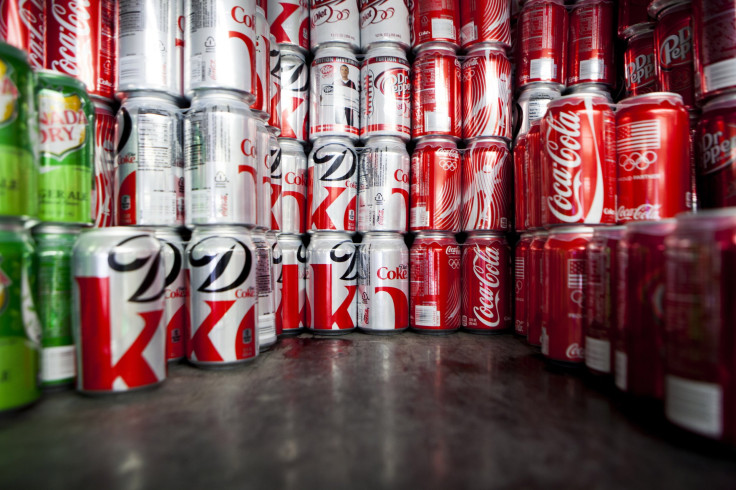Despite Childhood Obesity Concerns, Soda Companies Still Target Kids With Sugary Drink Ads: Report

Childhood obesity is rising, but beverage companies are still marketing sugary, unhealthy drinks to kids and teenagers. The number of TV and Internet commercials targeted at young consumers last year decreased overall, but certain companies -- like PepsiCo and Red Bull -- upped their efforts, according to a report released Wednesday.
Kids saw 39 percent fewer TV commercials for the beverages in 2013 than they did in 2010, and teenagers saw 30 percent fewer. At the same time, preschoolers saw 93 percent more ads for regular water, according to the report by the Yale Rudd Center for Food Policy and Obesity in Connecticut.
But PepsiCo, the world's second-largest food and beverage company, increased its TV commercials tailored to preschoolers by 39 percent, according to a news release. Red Bull, which sold 5.3 billion cans in 2013, increased TV ads for kids by 59 percent. These hikes in marketing were unacceptable, lead author Jennifer Harris said in the release.
“Despite promises by major beverage companies to be part of the solution in addressing childhood obesity, our report shows that companies continue to market their unhealthy products directly to children and teens,” Harris said.
A 2004 study found young people were particularly influenced by soda commercials. Kids were twice as likely to have a sugary drink every day if they watched 3.5 hours or more of TV every day, NBC News reported.
Even though online ads for sugary drinks declined by 72 percent between 2010 and 2013, companies were expanding their presence on social media. Red Bull's YouTube channel had more than 4,000 videos, and one Five-Hour Energy video garnered 46 million views. Several soda companies released game apps for children to play, like Snapple's Spiny Lobsters in Snaplantis, Mountain Dew's Baja or Bust and Fanta Fun Tap. This shift in marketing strategy was concerning, Harris said, because children's exposure to ads in the games was harder for parents to control.
PepsiCo and the American Beverage Association said the report's results were misleading and did not differentiate between age groups, Reuters reported. "The truth is that PepsiCo is, and will continue to be, a responsible marketer, particularly when it comes to children," a statement read.
© Copyright IBTimes 2024. All rights reserved.












